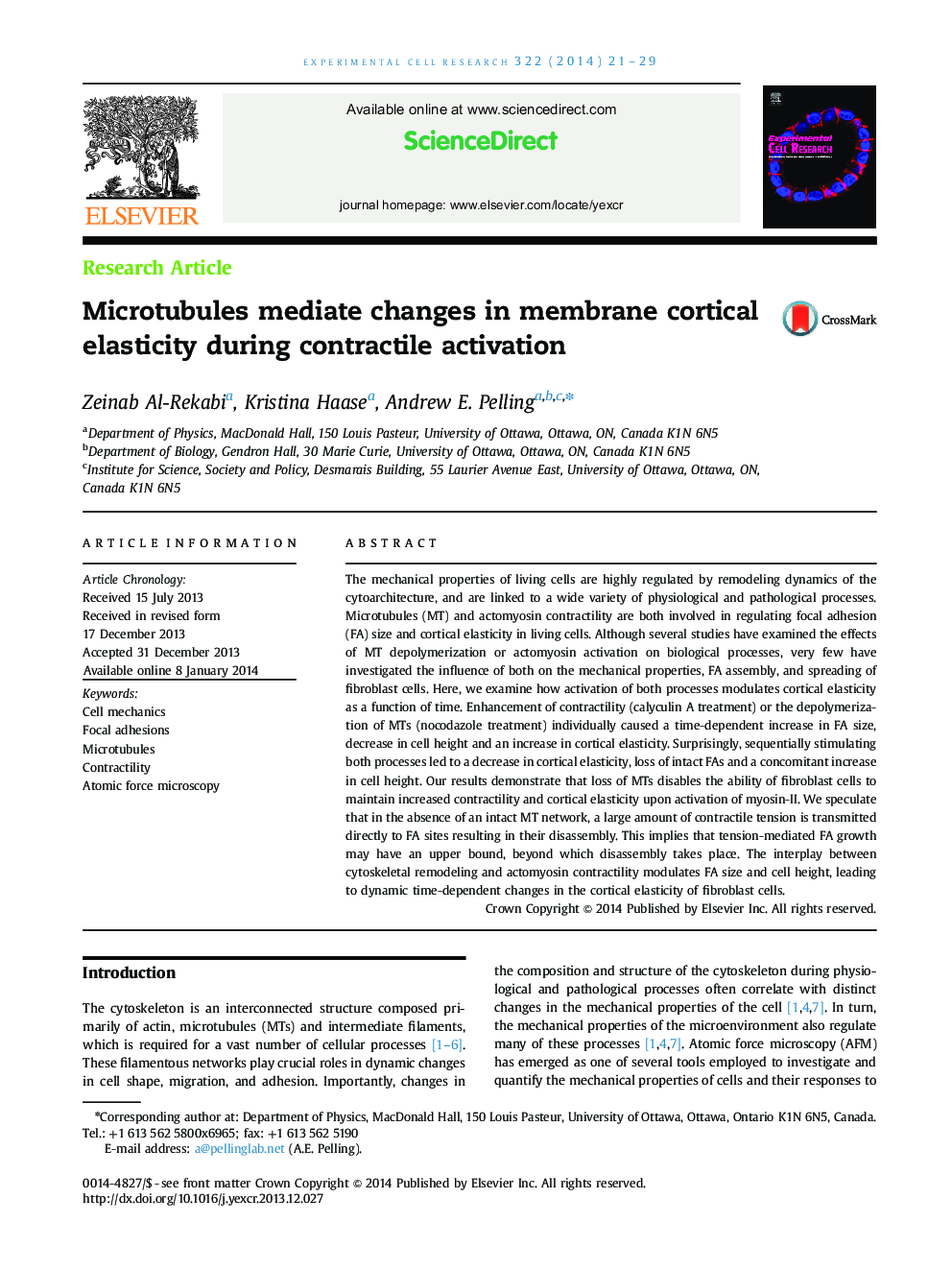| Article ID | Journal | Published Year | Pages | File Type |
|---|---|---|---|---|
| 10904063 | Experimental Cell Research | 2014 | 9 Pages |
Abstract
The mechanical properties of living cells are highly regulated by remodeling dynamics of the cytoarchitecture, and are linked to a wide variety of physiological and pathological processes. Microtubules (MT) and actomyosin contractility are both involved in regulating focal adhesion (FA) size and cortical elasticity in living cells. Although several studies have examined the effects of MT depolymerization or actomyosin activation on biological processes, very few have investigated the influence of both on the mechanical properties, FA assembly, and spreading of fibroblast cells. Here, we examine how activation of both processes modulates cortical elasticity as a function of time. Enhancement of contractility (calyculin A treatment) or the depolymerization of MTs (nocodazole treatment) individually caused a time-dependent increase in FA size, decrease in cell height and an increase in cortical elasticity. Surprisingly, sequentially stimulating both processes led to a decrease in cortical elasticity, loss of intact FAs and a concomitant increase in cell height. Our results demonstrate that loss of MTs disables the ability of fibroblast cells to maintain increased contractility and cortical elasticity upon activation of myosin-II. We speculate that in the absence of an intact MT network, a large amount of contractile tension is transmitted directly to FA sites resulting in their disassembly. This implies that tension-mediated FA growth may have an upper bound, beyond which disassembly takes place. The interplay between cytoskeletal remodeling and actomyosin contractility modulates FA size and cell height, leading to dynamic time-dependent changes in the cortical elasticity of fibroblast cells.
Related Topics
Life Sciences
Biochemistry, Genetics and Molecular Biology
Cancer Research
Authors
Zeinab Al-Rekabi, Kristina Haase, Andrew E. Pelling,
